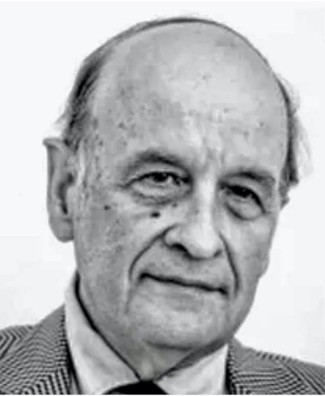The Sewanee community mourns the death of George Core, longtime editor of the Sewanee Review

George Eric Core, scholar, editor, and writer, died on Oct.14, 2023, at the age of 84. He is survived by his wife of 63 years, Susan Darnell Core; his son John Early Core and his partner Judith Stefania Donath; his daughters Anne Farley Core and Julia Core Carlson and her husband William James Carlson and their daughter Frances Dorothy Carlson. He was preceded in death by his daughter Elizabeth Dunne Core.
George Core was born on Jan. 12, 1939, in Kansas City, Missouri. He was married to Susan Darnell in 1960. Core began his long tenure as editor of the Sewanee Review, the oldest literary quarterly in America, in September 1973, after being senior editor at the University of Georgia Press. A native of Lexington, Kentucky, Core attended Transylvania College, earned his BA and MA degrees from Vanderbilt University, and after he served as a captain in the U.S. Marine Corps, he received a Ph.D. from the University of North Carolina at Chapel Hill. He taught literature at Chapel Hill, the University of Georgia, Davidson College, Vanderbilt University, Emory University, and the University of the South. Core was an active scholar and writer, publishing throughout his entire career as an editor for 48 years. His articles and reviews were published in the New York Times Book Review, the New Republic, the Wall Street Journal, the Baltimore Sun, the Southern Review, and others. Core edited or co-edited seven books, primarily in the field of American literature. He served three times on juries for the Pulitzer Prize committee and was a founding member of the Fellowship of Southern Writers.
Core’s own academic fields of interest were in American, British, and Irish literature, the works of Henry James, contemporary literary criticism, and the importance of the Southern literary renaissance. He broadened the scope of the Sewanee Review from being a primarily Southern- focused journal to being a journal that encompassed regional, national, and international writing. As an editor, Core helped to advance the careers of such writers as Eudora Welty, Robert Penn Warren, Shelby Foote, Patrick White, William Trevor, William Hoffman, William Styron, George Garrett, Louis D. Rubin, Wendell Berry, Sam Pickering, and Roy Foster.
To many writers now woven into the fabric of great American literature, the Sewanee Review, under Core’s leadership, was one of the most carefully edited literary quarterlies in the country. To be part of its conversation in print was an achievement. To receive that rare handwritten letter of acceptance from George Core meant he was interested in your future and in what you would contribute in the long run (and it was a long run) to the magazine and to American letters. He was deeply serious about his responsibility as conservator of a critical program that had lasted over a hundred years and produced some of the most enduring voices in the “republic of letters,” as he and Allen Tate liked to say.
George Core edited several books, including compilations of critical essays, such as a book on short-story writer Katherine Anne Porter and another on postbellum literature’s progression into the early 20th century. In his 1993 collection entitled The Critics Who Made Us: Essays from the Sewanee Review, Core gathered 20 essays by a variety of British and American literary critics who had contributed to the magazine; Core provided critical essays about authors such as Robert Penn Warren and George Orwell. Core also edited, with H. L. Weatherby, a collection of essays entitled Place in American Fiction: Excursions and Explorations.
As Leigh Anne Couch so eloquently put it, “George Core and I worked together on the Sewanee Review for more than a decade, not even a quarter of his full tenure as editor. But for me, who was no more than 15 feet away from him Monday through Friday, George Core became a dear and brilliant enigma. He remains the most well-read, unaffected, and steadfast person I’ve ever known, genuinely loving and curious about people, with a strong affection for the grumpy and a true disdain for bellyachers. There was nothing frivolous about the man, and he helped me finally dispel the fear that a life in the arts was possibly a frivolous choice. If this old military man over six feet tall could tear up reading a portion of a new William Trevor story in my doorway, then I would build my life on stories and poetry, and it would be a sturdy one.”
George Core was not only committed to nurturing the literary world but also the world around him. The stories of George Core’s kindness and generosity are almost legendary among all who knew him. He was selfless with his time, picking up stranded hitchhikers, spreading his gentle wisdom by teaching young children to read, and raising money for a colleague whose home was destroyed in a fire. He helped those both young and old, healthy and sick, rich and poor. He left his mark on all those he met. Our world has suffered the loss of an extraordinary man. In lieu of flowers, donations may be made to the Young Writers’ Conference at the University of the South and the chapel at St. Andrews-Sewanee School both in Sewanee, Tennessee.

